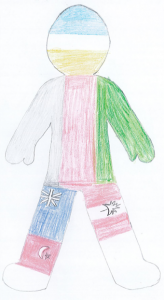2022 VicTESOL Symposium
Panel of Experts: Finding the Common Ground
Chair:
Assoc. Prof. Russell Cross (Melbourne Graduate School of Education)
Panelists:
Rebecca Paic (Catholic Education Commission Victoria), Angela DiSciascio (Gordon Institute of TAFE), Mairead Hannan (Collingwood English Language School), Peter James (Richmond West Primary)
Discussants:
Prof. Ben Rampton (Kings College London), Dr Mel Cooke (Kings College London)
Summary
The symposium kicked off with an engaging panel discussion facilitated by Assoc Prof Russel Cross in response to the keynote presentation by Prof Ben Rampton and Dr Mel Cooke. Panel members from the primary, secondary, Catholic and adult sectors shared their insights on the role of EAL teachers in their setting, how much EAL teachers have in common across settings, how policy and curriculum shape the work of EAL teachers and what the important aspects are of an EAL teachers’ role in different settings. The discussion illuminated a shared passion across all sectors for the holistic needs of EAL learners and the unique and privileged role that EAL teachers play in the lives of learners that goes far beyond curriculum, pedagogy and assessment. The panel ended with thematic conclusions from Ben and Mel, who had watched the discussion via zoom from the UK.
Recording


